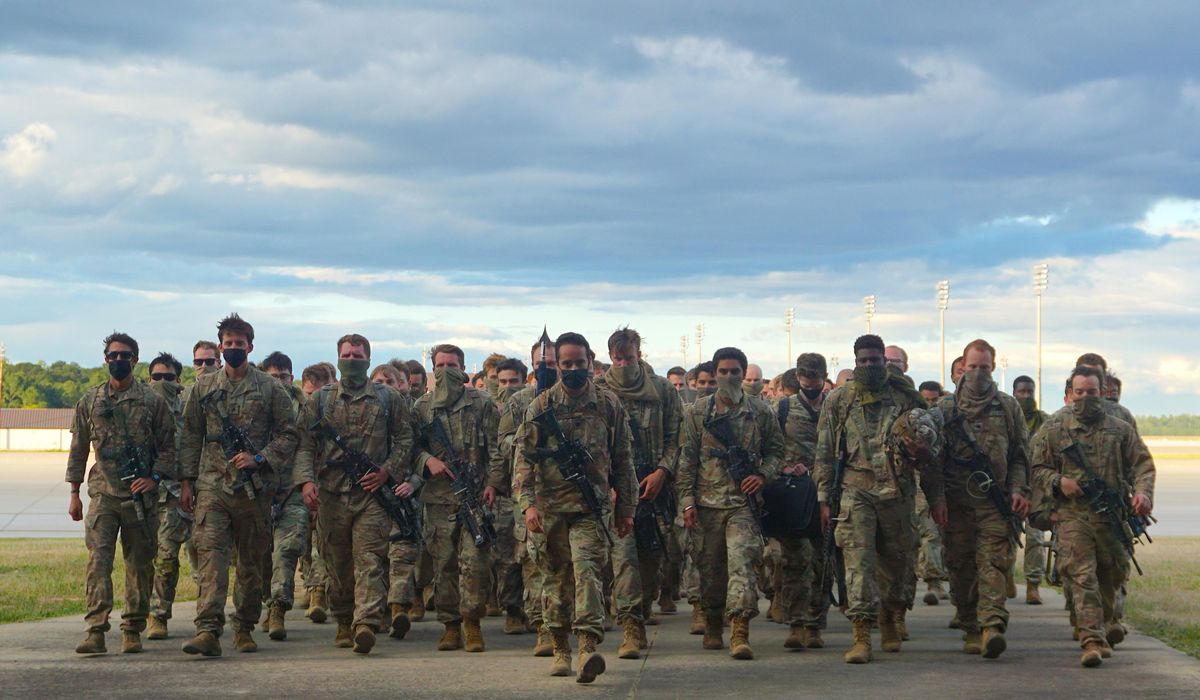Army taking fresh look at denial of Purple Heart to troops targeted by Iranian missiles

A former Army captain said some of the troops who served with him during a 90-minute Iranian ballistic missile barrage in Iraq almost two years ago suffered real injuries and deserve more recognition than they received.
On Friday, the Army said it will take a second look at whether dozens of additional personnel should have been awarded the Purple Heart following the January 2020 strike on the Al-Asad airbase in western Iraq.
“These were people who were hurting bad but sucked it up,†said former Capt. Geoffrey Hansen, whose 82nd Airborne Division unit had been assigned to the 34th Expeditionary Combat Aviation Brigade during the missile strike.
“They didn’t want to let down the unit. They believed that much,†Mr. Hansen, now a graduate student at the University of Virginia, told The Washington Times.
Almost a dozen Iranian ballistic missiles, each carrying a 1,600-pound warhead, struck the airbase. The impact ripped apart living quarters, hangers, and maintenance facilities used by the troops.
The missile attack was in retaliation for the Jan. 3, 2020, U.S. drone strike that killed top Iranian commander Qassem Soleimani and a senior Iraqi militia leader. Alyssa Farah, a former Pentagon spokeswoman, said the Trump White House pressured the military to minimize injuries sustained by the military personnel at the base.
“There was an effort from the White House to want to say the Iranians were not successful in harming our targets in response. I think that went too far,†Ms. Farah said, according to Al Jazeera.
Although there were no direct deaths or wounds, the Pentagon later said that large numbers of troops were diagnosed with “traumatic brain injuries†(TBI) from the noise, stress and pounding endured during the attack.
In an Oct. 6, 2021 letter to the Army’s Human Resources Command, Col. Gregory Fix, commander of the aviation brigade, said he submitted 56 Purple Heart award packages to the soldiers assigned to Task Force Scarecrow, Mr. Hansen‘s former unit.
“TF (Task Force) Scarecrow personnel were required to remain at Al-Asad airbase to support ongoing operations in Iraq, despite having insufficient shelters to protect the company from an attack of this scale. The entire company was near the point of impact of the majority of the missiles,†Col. Fix wrote in his letter.
The Army surgeon assigned to the brigade reviewed each medical record to ensure all injuries were properly documented, Col. Fix wrote. The Army awarded Purple Hearts to 23 of the soldiers on the list and told him to hold public recognition ceremonies for only four of them.
In his letter, Col. Fix wrote that it appears the remaining 33 Purple Heart awards on the list he submitted were disapproved by someone in the chain of command.
“I was also directed not to inquire about the remaining awards or resubmit those awards,†he wrote.
On Friday, the Army acknowledged it had received “a number†of Purple Heart nominations related to the attack.
“HRC (Human Resources Command) routinely possesses award nominations submitted from units, soldiers, veterans and family members from as far back as [World War I],†Army spokesman Cynthia O. Smith said in a statement released to The Washington Times. “HRC will evaluate each award nomination, to include posthumous submissions, expeditiously and on their individual merit in accordance with Army regulations.â€
The troops from Task Force Scarecrow had been warned ahead of time that the barrage from Iran was imminent. They hunkered down inside the bunkers as the missiles struck the base. Mr. Hansen said he had been through hundreds of rocket attacks during his time in Afghanistan. But this was something else entirely, he said.
“You never saw them â€" the missiles. But you could feel it. It was deafening,†he recalled. “It wasn’t until the light came up [the next morning] that we got the ‘All Clear.’â€
Col. Fix said 69 of the soldiers were diagnosed with traumatic brain injuries. Of that number, 25 were medically evacuated and three refused to leave before the unit rotated back. He said 41 ultimately received a TBI diagnosis that required more than a week of rest.
Mr. Hansen said he is now hopeful that his former troops will finally get the recognition they deserve.
“I’m optimistic it will get a good review now that the Army is looking at it properly,†he said.
0 Response to "Army taking fresh look at denial of Purple Heart to troops targeted by Iranian missiles"
Post a Comment